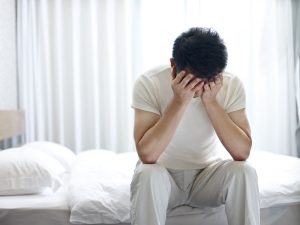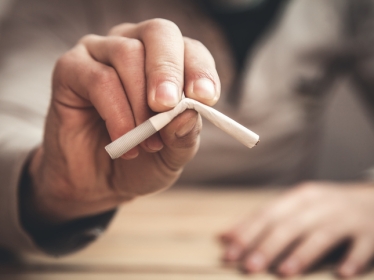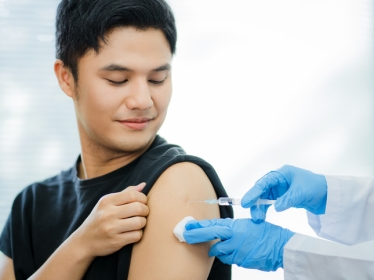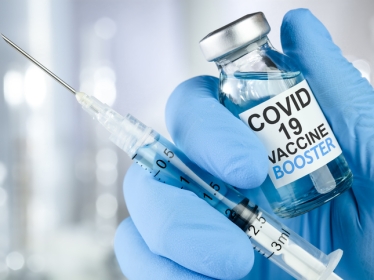
Depression is more than just “feeling sad”, it is a serious medical condition that affects how a person thinks, feels, and acts. In turn, this can affect the ability to function normally in daily life. Depression affects people differently. What is important to note, is that depression is treatable when proper treatment is given.
There are a few different types of depression. While they may have similar symptoms, there are differences in how these depressive disorders present themselves and are treated.
1. Major depression (major depressive disorder)
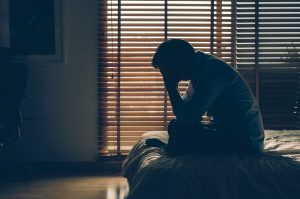
Major depression is probably the better known of the depressive disorders. Here, the depressive symptoms persist for at least 2 weeks.
Apart from the core symptoms of depressed mood and loss of interest in activities previously enjoyed, other symptoms include:
- negative thinking
- feelings of worthlessness or hopelessness
- a sense of despondency
- difficulty sleeping or sleeping too much
- lack of energy and fatigue
- loss of appetite or overeating
- unexplained aches and pains
- lack of concentration, memory problems, and inability to make decisions
- constant worry and anxiety
- thoughts of death, self-harm, or suicide
2. Dysthymia
Dysthymia shares the same presentation as major depression. It is sometimes known as minor depression. To note, there is nothing “minor” about dysthymia. While the symptoms are of less severe intensity, they can persist for years. Dysthymia can be as, if not more disabling than major depression.
When the individual experiences a major depressive episode in addition to underlying dysthymia, it is termed “double depression”.
3. Bipolar disorder (manic depression)

Persons with bipolar disorder, apart from experiencing episodes of unusually heightened mood, can also have depressive episodes or mixed episodes, where both depressive and manic/hypomanic symptoms occur. It is worthy to note that depressive episodes occur far more frequently than manic/hypomanic episodes.
4. Depression associated with Psychosis
Psychosis is a severe neurobiological illness where a person experiences hallucinations, delusions, and becomes dislocated from reality. Alongside this devastating illness, depressive symptoms can occur. These can either be a reaction to the psychotic illness, part of the psychotic illness, or arise after the psychotic symptoms have abated.
5. Perinatal Depression

Depressive symptoms can occur during pregnancy or after giving birth. The latter is known as postnatal depression.
Apart from hormonal changes during pregnancy and childbirth causing mood changes, sleep deprivation, and having to adjust to the responsibility of caring for a newborn can exacerbate mood swings and cause emotional distress.
Perinatal depression can happen to anyone. Women who have had depression before, or lack social/emotional support can be at higher risk of developing it.
Symptoms of perinatal depression can be as severe as those of major depression and can also include:
- extreme worry about the baby’s health and safety
- difficulty caring for oneself or the new baby
- thoughts of self-harm or harming the baby
Considering the impact maternal mood state has on the child’s wellbeing, this type of depression needs to be identified promptly and given the medical attention it deserves.
6. Premenstrual dysphoric disorder
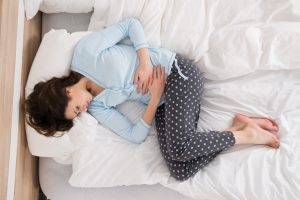
Premenstrual dysphoric disorder is a severe form of premenstrual syndrome (PMS) where symptoms are mostly psychological, as opposed to PMS which can have both physical and psychological symptoms. These psychological symptoms are more severe than typical PMS symptoms, e.g. PMS may cause women to feel more emotional in the days leading up to their period, but someone with PMDD may experience depression and sadness to the extent that it affects their daily lives.
PMDD may be overlooked as “very intense PMS”. However, it can become very severe and even be associated with suicidal thoughts. Premenstrual dysphoric disorder is thought to be related to hormonal changes that occur during the menstrual cycle and/or beginning after ovulation. It tends to improve once the period occurs.
7. Depressive symptoms within the context of Adjustment Disorder or Medical Problem

Depressive symptoms can occur too when one experiences difficulty adjusting to life events. They can also occur as an emotional reaction to medical problems or as a side effect to certain medical treatments.
How can I tell which type of depression I have?
If you think that you have symptoms of any of the types of depression mentioned in this article, please consider seeking advice from a doctor or mental health professional. You can talk to them about your concerns and they will be able to help with a plan. Don’t be afraid to care for your mental health, it is just as important as your physical health.

